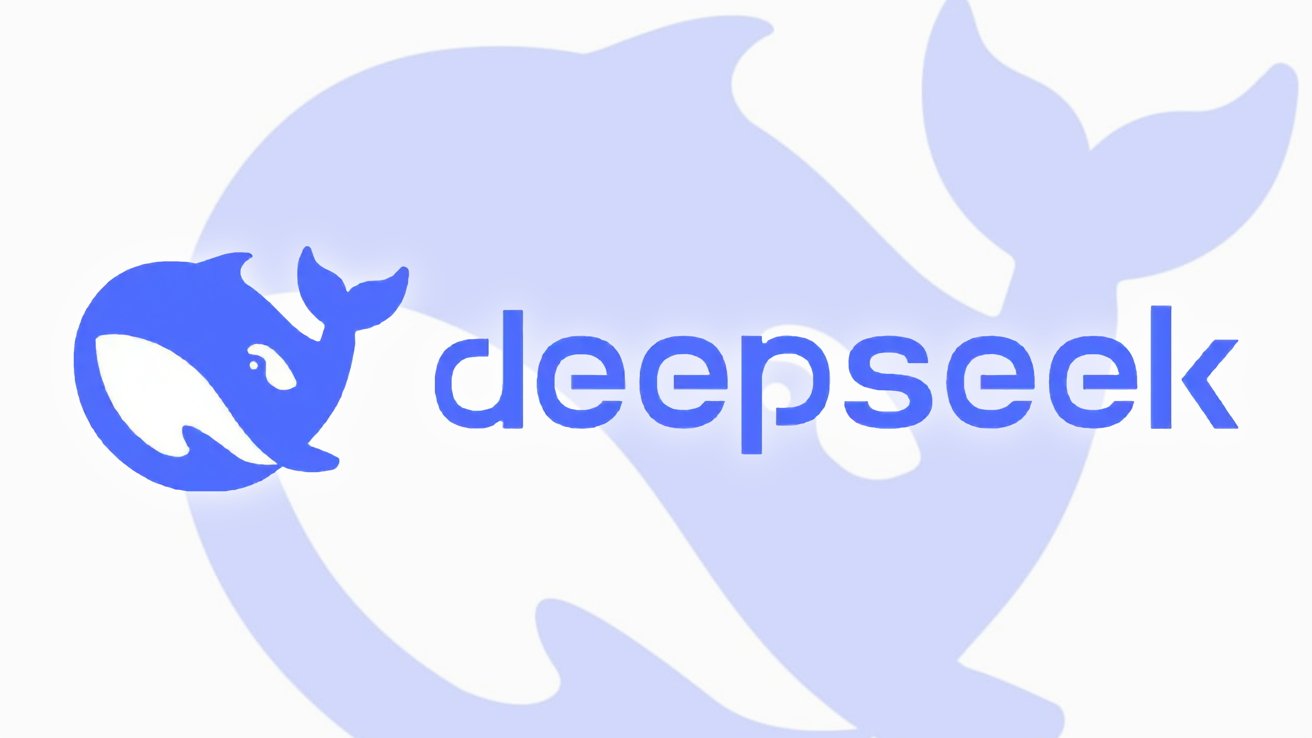
Chinese AI app DeepSeek is on top of the App Store, challenging Apple Intelligence, and shaking Wall Street confidence in big tech.
The market for generative AI is already dominated by a few major names in the West, with Apple Intelligence alongside Google Gemini and OpenAI’s ChatGPT. While there are many smaller efforts to offer AI services, one has seemingly come out of nowhere in a surge of popularity.
Called DeepSeek, it’s an app that has leaped to the top of the U.S. App Store, as well as many other countries, in a very short space of time. Following the release of its LLM one week ago, it has seen massive growth in a short space of time.
It has already been heralded as a milestone in AI. However, just as quickly as it became a major event in AI, it may just as easily disappear from view.
Rapid launch, cheaper product
DeepSeek is a chat app in a similar vein to ChatGPT. You can ask it questions and to perform tasks, and it will use its large language model (LLM) to offer a response.
This is practically what ChatGPT and other competitors offer users, and isn’t massively transformative on its own. However, the circumstances behind it are more interesting.
DeepSeek-V3, the LLM, was officially released in December, with a mobile app introduced just one week ago by the Chinese AI company. That app uses R1, a reasoning model that is based on V3.
However, the LLM was released as an open source model, instead of being a proprietary model. Due to the U.S. limiting the shipments of AI chips to China, developers had to work on alternative ways to not only train models, but also to perform the actual queries.
This necessitated collaboration between development teams, which led to the open-source LLM’s development. It’s a model that anyone can download, including from Hugging Face.
With limited hardware, it had to pull off some new tricks to be as resource-efficient as it can. This included analyzing the query to only use relevant parts of the LLM itself, cutting processing costs considerably.
These limitations were also affected by the team having a considerably smaller budget than typical AI projects cost in the West. It allegedly cost DeepSeek just $5.58 million to train the model, reports The Register.
Bearing in mind Microsoft’s billion-dollar investments into OpenAI and the U.S. government’s $500 billion Stargate AI project, DeepSeek’s development is a drop in the ocean.
DeepSeek’s big splash
The sudden massive popularity of DeepSeek has been felt by the money markets, stunned by a newcomer that could feasibly offer ChatGPT responses for minimal cost. The shares of major AI companies have been badly hit in the face of a cheaper, faster rival competing against well-heeled projects.
Most affected was chip maker Nvidia, which saw its shares dip at a peak of 17 percent on Monday, reports the BBC. The incident wiped more than $600 billion in share value in one day alone.
Other tech companies also saw their shares affected, including Microsoft and Meta. Apple, meanwhile, seems largely unaffected by the news.
It is likely that Nvidia was hit the most due to it being a supplier of high-priced hardware used for machine learning purposes. With a model demonstrating training can be efficiently done with minimal resources, it means there could be less reliance on Nvidia’s chips in the future.
Denial of service attack
While popularity is often a great thing for business, sometimes the attention can cause problems. In the case of DeepSeek, it’s from a suspected distributed denial of service (DDoS) attack.
A note on the status page advises that “large-scale malicious attacks on DeepSeek’s services” is underway. To try and counter the problem, and to limit its impact on new users, DeepSeek has limited the registration of new accounts temporarily.
For the moment, only users in China with an +86 country code phone number can sign up for a new account. Existing users who already have an account can continue using it without issue.
It is likely that DeepSeek will keep the limitation in play until it can mitigate the DDoS, or if the attack eventually dies down.
The risk of China
The impact of DeepSeek cannot be ignored by the AI industry as a whole. Indeed, tech investor Marc Andreessen referred to it as “AI’s Sputnik moment,” with US efforts blindsided by an AI produced in a rival superpower.
However, as history has shown, it’s likely that DeepSeek will have a bumpy ride in the United States and in the West in general.
The United States is very wary of Chinese developments, especially in the tech field. With claims of national security issues at risk, the United States has already diminished Huawei’s presence in the West, leaving it to be a major force in its home country.
Then there’s the constant battle over TikTok. While current events may see it rescued from a ban in the U.S., the entire issue stemmed from the U.S. deeming it a potential security risk to consumers.
It’s likely that, if DeepSeek sticks around and stays extremely prominent, the U.S. government may become interested. When that happens, it’s likely that there will be accusations of it being a security risk, calls for investigations, and possible bans too.
Even if that occurs, DeepSeek may have already inflicted enough damage on the West’s AI efforts, simply by demonstrating that it can be done in cheaper ways, without significant hardware acquisition or ongoing running costs.




